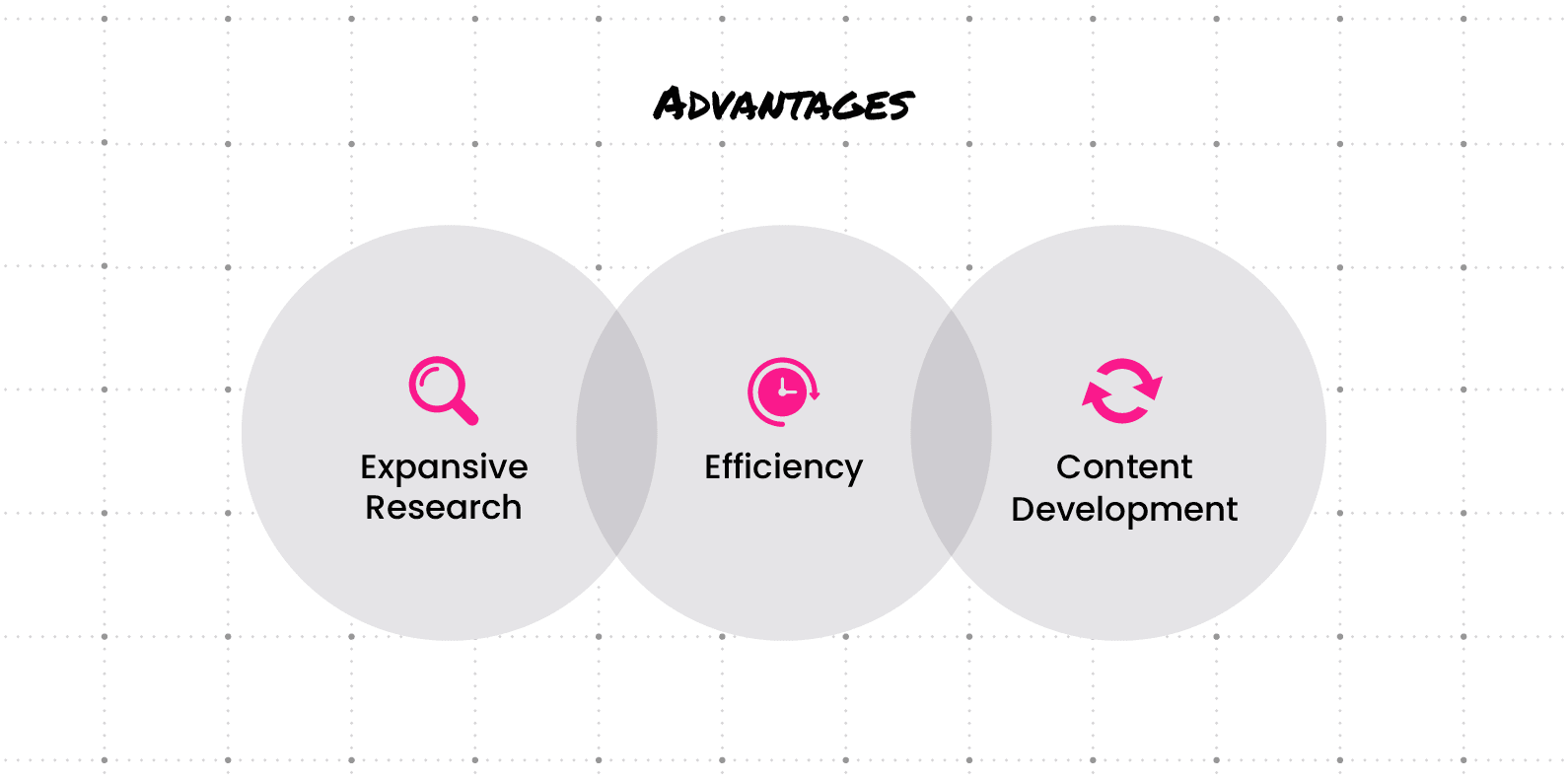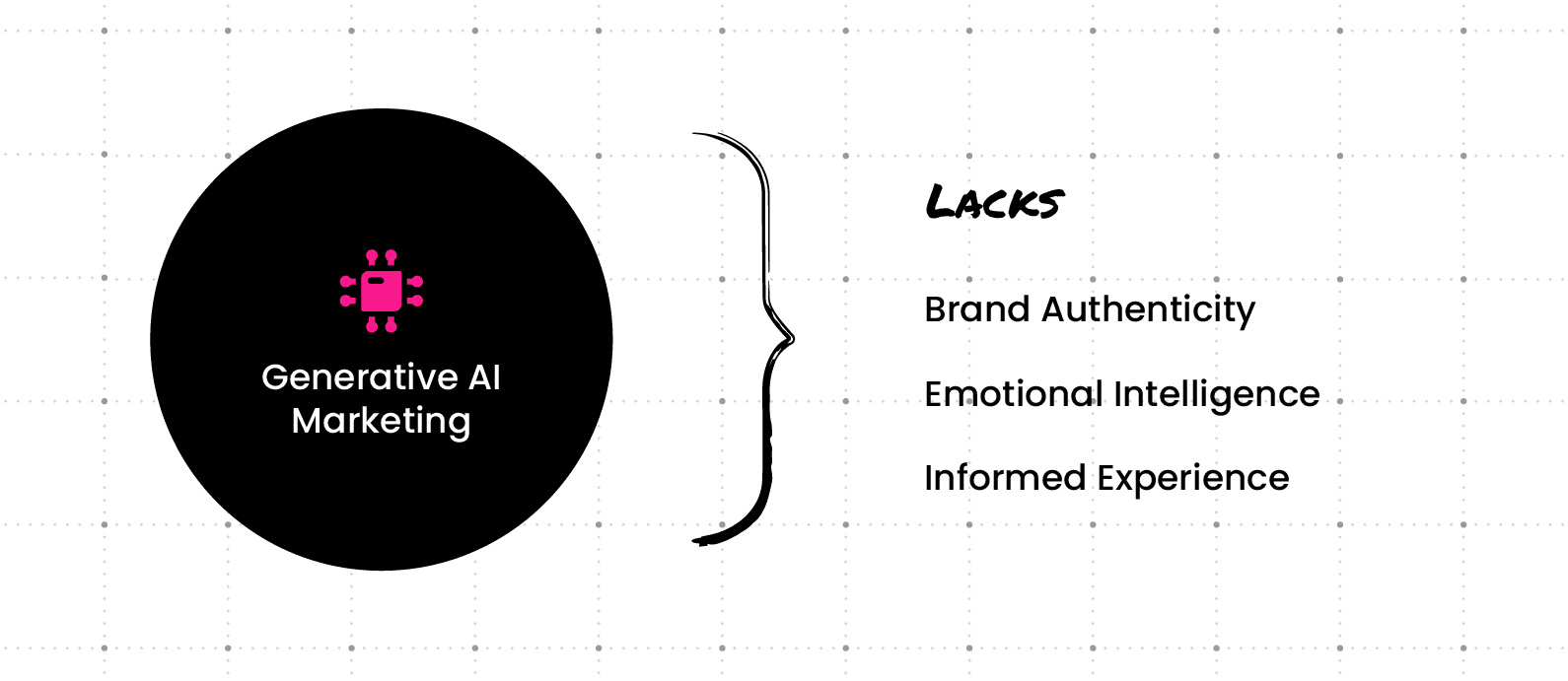When you allow AI to take the reins of your marketing content, you’re fundamentally working against your effort to build a connection with customers.
Exploring the many possibilities found in the new flock of generative AI tools for your B2B marketing efforts can be overwhelming. That’s especially true as companies strive to identify every efficiency available in a challenging economy. However, as you evaluate enlisting AI to generate or augment your marketing content, you run the risk of sacrificing a vital asset: The authenticity of your brand.
As the frenzy around generative AI continues, the B2B tech industry is driven to explore new possibilities in automation and efficiency. But amid so much buzz, it’s important that you don’t lose sight of the central focus of B2B marketing: Person-to-person connection.
After all, though you likely have a few companies in mind when considering your right-fit prospects, you aren’t selling your product or service to faceless brands. You’re trying to build trust among real people who need to resolve a problem.
Understanding the Roots of Generative AI and its Potential for B2B Marketing
Whether we’re talking about ChatGPT, Google’s Bard, or Microsoft’s Bing Chat, we’re talking about generative AI technology. The differences between each tool comes down to their data sources.
ChatGPT, which also powers Bing Chat, has been fed information to produce answers with human-like expertise. Bard, on the other hand, gains its information by accessing data from websites.
Generative AI uses neural networks to identify the patterns and structures within existing data to, well, generate new content. And while AI is currently the shiny new thing, the technology actually dates back to the earliest uses of chatbots in the 1960s. Of course, advances in large language models and machine learning have exponentially simplified the user interface since then.
Now, generative AI has the potential to transform operations for B2B companies. Marketers like you can prompt AI tools to generate articles, emails, and other marketing content in seconds.
AI-powered software offers new ways to optimize your website for customers, identify keywords and new topics, and provide conversational engagement through chat. Tools such as Uberflip, MarketMuse, and others apply context-specific models and proprietary data to provide vital resources for B2B marketers.
Advantages of Applying AI to Your Marketing
Indeed, AI tools can be powerful allies for optimizing your B2B website and your marketing strategy. Software powered by AI can identify new keywords and enhance customer engagement through advanced chat capabilities. Other benefits might include:

- Expansive Research: AI tools are built upon vast amounts of data, which means they can pull insights from a wide range of sources in a fraction of the time it would take a human.
- Streamlined Content Development: With predefined parameters, AI can generate bulk content on a wide range of topics, including blog articles and social media posts.
- Efficiency: For businesses looking for a competitive edge, the pace and relative costs to generate insights from AI offers a core advantage when applied properly.
While AI offers opportunities to streamline your marketing efforts your B2B needs to be aware that the technology is only a tool rather than an all-in-one solution.
What Generative AI Can’t Deliver in B2B Marketing
Before you allow AI to take the reins of your content, you have to consider the areas where the technology falls short without human oversight.
Authentic Content Aligned With Your Brand
AI lacks the emotional resonance necessary for your B2B’s marketing to build trust among customers. Plus, AI uses pre-existing content to inform anything it produces. Consequently, AI tends to churn out broad, surface-level content that fails to add anything new or exciting to conversations.
Along with sounding generic, content that’s missing your brand’s distinct perspective will make the effort to stand out among competitors that much harder and potentially do exactly the opposite. So while generative AI is a great tool for outlining and compiling first drafts, you need a human touch to incorporate the unique positioning of your brand.
Human Connection and Emotional Intelligence
All business transactions are ultimately human interactions. When you allow AI to take the reins of your marketing content, you’re fundamentally working against your effort to build a connection with customers.
B2B content that is derived from understanding and empathizing with your audience requires emotional intelligence that AI still fails to replicate. Those connections are why your B2B content needs to capture a voice and tone unique brand to be effective.

Expert Judgement or Informed Experience
AI bases its conclusions on data analysis. But information is only part of the equation when it comes to successful marketing. Your executive leadership and other experts within your organization offer experience and perspective about your brand and its offerings that universally accessible AI can’t produce. Generative AI struggles to understand cultural nuances and humor, which inhibits its ability to successfully connect with your audience.
AI also has a tendency to introduce inaccuracies, which means its content demands strong editing before potentially misrepresenting your brand. For example, at Clear Digital, we recently asked Bard to deliver a report on our company’s reviews on Glassdoor. Though we initially trusted the tool to accurately produce results drawn from the web, the results were based on reviews that didn’t exist.
Plus, AI-produced content has the potential to impact the search ranking of your pages or introduce legal issues as the technology’s relationship with copyright laws remains a work in progress. All that to say, using generative AI in your marketing content needs to be one of your many tools, not your overarching strategy.
B2B Marketing With Generative AI Still Requires Human Oversight
The buzz surrounding AI is deafening, especially in the B2B tech sector. After all, it’s a powerful and world-changing tool, and our industry is built upon harnessing the leading edge of technology. However, the way you use generative AI to impact your goals is what’s most important for your business. For all the power generative AI delivers, your ability to adhere to the fundamentals of marketing offers the most potential.
The essence of any successful brand is its authentic voice and its ability to form a genuine connection with its audience. While AI can augment various aspects of business operations, when it comes to brand narratives and messaging, there’s no substitute for the human touch. So as generative AI continues to evolve, the tools that incorporate this technology can continue to play a role in your brand’s marketing strategy. However, if your B2B is using AI for content creation, you still need to incorporate strict human oversight and editing.






